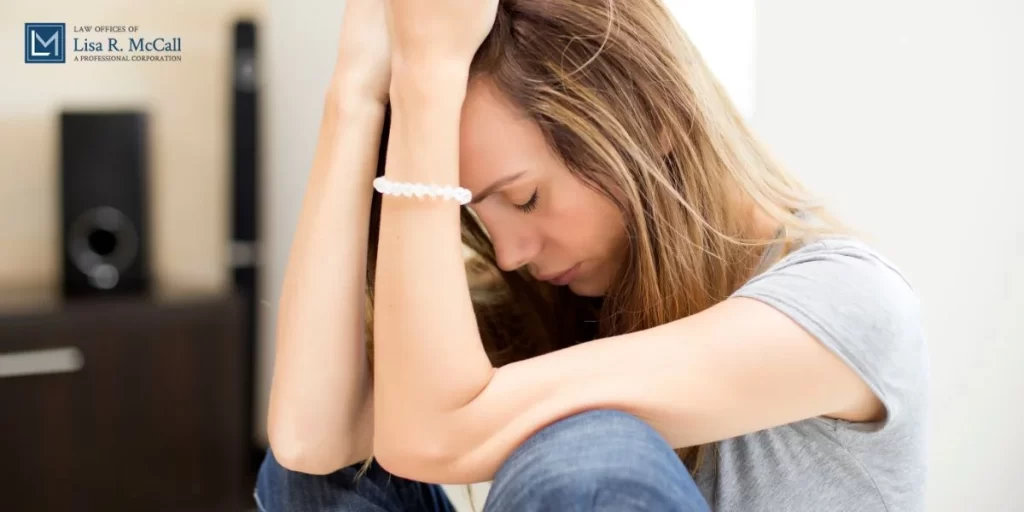Domestic violence cases can be emotionally wrought and complicated legal matters that require a solid case in order to make a criminal charge stick. In the midst of these proceedings, you might find yourself wondering what evidence should be collected in a domestic violence case. This is where an experienced Huntington Beach domestic violence attorney can help you have the peace of mind that someone is in your corner.
Domestic violence is a serious allegation and should not be taken lightly. An attorney is vital to make a successful criminal charge. They can help you navigate this challenging time. With their assistance, a lawyer can help you gather and analyze the right evidence before you head into the courtroom.
What Is Domestic Violence?
It is a common misconception that domestic violence is only committed via physical abuse. While physical abuse is a large part of domestic violence, there are other things that fall into the official definition.
Any behavior committed by a partner or a family member that is manipulative, controlling, or threatening that reaches a level of emotional or psychological abuse can be defined as domestic violence. Harassment, stalking, and actions or words that threaten violence or other physical harm are all examples of domestic violence. Still, other forms include threats made against family members or children or any other behavior that scares or intimidates a spouse or partner.
Unfortunately, domestic violence can be an element of many divorce or child custody cases.
Any of the included behaviors can be employed by an abuser in order to control their partner or keep them hostage in any form of a relationship.
Physical Evidence to Collect
In any criminal case, evidence plays a large role in convicting a defendant of a criminal charge. The prosecution must be able to prove the inflicted harm and build a solid case for criminal intent. Physical evidence that can be used during the course of a domestic violence case includes:
- Broken Property: During a domestic violence altercation, personal property can be broken or damaged. If the items destroyed had the ability to cause harm to the victim, this can be used as evidence. Examples may include items thrown or broken to cause fear or physical harm. Additionally, if the property was damaged but not broken, there is a possibility for vandalism charges to be brought against the defendant.
- Photographs: Often the strongest form of physical evidence in a domestic violence case, photographs can be taken of visible injuries and damaged property and shown during the course of court proceedings.
- Medical Reports: Health and medical professionals are required by law to follow certain rules. One of these rules includes that if they treat a patient who they suspect has experienced domestic abuse, they have to report their suspicions to the authorities.
- Video Footage: If the incident occurred in view of security or surveillance cameras, this footage can be used as evidence in your case.
It is imperative to your case that any physical evidence be collected and studied. If you or a loved one has experienced domestic violence, remember to take photographs of the scene of the incident and any injuries suffered, contact your healthcare provider, and check to see if any footage is available.
Verbal Evidence to Collect
Another vital source of evidence in a domestic violence case is the verbal testimonies of eyewitnesses, responding police officers, experts in nuances of the case, and the victims themselves.
- Witness Testimony: Someone who heard or saw the altercation can be called on as a witness in the case. These people may include family members, neighbors, or other bystanders.
- Police Testimony: In addition to reports filed by the authorities, police officers who responded to the scene can be called to give testimony of what they saw upon their arrival.
- Expert Testimony: Medical professionals, mental health workers, or domestic violence experts can be called to share insight on the psychological state of the defendant, the injuries of the victim, or the dynamics of the abuser and the one being abused.
- Victim Testimony: Someone who suffered any form of abuse at the hands of the defendant can be called on to share their experience. An account of events told from the victim’s point of view can hold great weight in these cases.
An attorney can call upon any and all of these groups of people to give testimony before a judge. Testimonies are a strong piece of evidence when trying to convict a domestic violence charge.
Documentation Evidence to Collect
Another source of evidence that can be employed during domestic violence proceedings includes any form of documentation. Documentation can come from medical professionals detailing injuries or the state of an individual’s mental health, from police officers who recorded their thoughts and findings at the scene of the altercation, and any texts, phone recordings, or emails sent to and from the defendant that may be of a threatening, violence, or harassing nature.
FAQs
Q: What Are Key Pieces of Evidence Investigators Are Likely to Process and Collect at Domestic Violence Crime Scenes?
A: In domestic violence cases, investigators are likely to collect a range of physical forms of evidence. These can include signs of injuries like cuts, bruises, scrapes, marks made by choking, or fractures that can be photographed. Other evidence can include broken property, torn fingernails or ruined clothing, and forensic evidence like blood, fingerprints, semen, saliva, or tissue under fingernails.
Q: What Is the Importance of Evidence-Based Prosecution for Domestic Violence Cases?
A: The importance of evidence-based prosecution is the fact that it often results in higher rates of convictions in domestic violence cases. This is especially true in cases where the abuser might otherwise go free due to their effective manipulation or threatening of their victim. If evidence is not available and a victim is coerced into dropping charges, the case could fall apart.
Q: Which Questions Should Be Asked as Part of the Patient’s History to Identify Potential Domestic Violence?
A: There are a number of questions to ask a patient or person who you suspect is a victim of domestic violence. These questions can include how long the violence has been happening, if they feel safe in their current relationship, if someone has been kicked, punched, or otherwise physically harmed by someone else in their life, or if their partner controls their finances, activities, or children.
Q: What Are Three Things Evidence Can Do for an Investigation?
A: In a domestic violence investigation, evidence has the potential to do a litany of things. The three most important things evidence can do, however, include it being useful in determining how the crime was committed, being able to connect and identify a crime with a specific suspect, and it also has the ability to clear an innocent person who did not commit the crime.
Contact a Trusted Domestic Violence Lawyer Today
The legal proceedings of a domestic violence case can be difficult and stressful for everyone involved. These accusations should not be taken lightly, and it is crucial to your case and your safety to retain the counsel and representation of a skilled and competent Huntington Beach domestic violence attorney.
Contact the team at the Law Offices of Lisa R. McCall to see how we can help you. Our passion is fighting and advocating for your rights and protections with care, compassion, and dedication.









